We can no longer overlook the the connection between climate change and racial and social inequities. The climate crisis is a manifestation of a structural violence against both the people and the environment, with roots in colonialism, capitalism, and other systemic forms of oppression against black and brown bodies. Black, indigenous, and people of color have historically been, and will continue to be, disproportionately affected by climate change. There have been generations of injustices committed against these communities. In fact, “race is the number one indicator for the placement of toxic facilities in this country” (NAACP). As stewards of God’s creation, we cannot be for the planet, without also being for the people. And as Anabaptists, we are committed to opposing violence, fighting for justice, and building peace in our communities, institutions, and ecosystems. In short, we cannot truly protect the environment unless we tackle social justice, too.
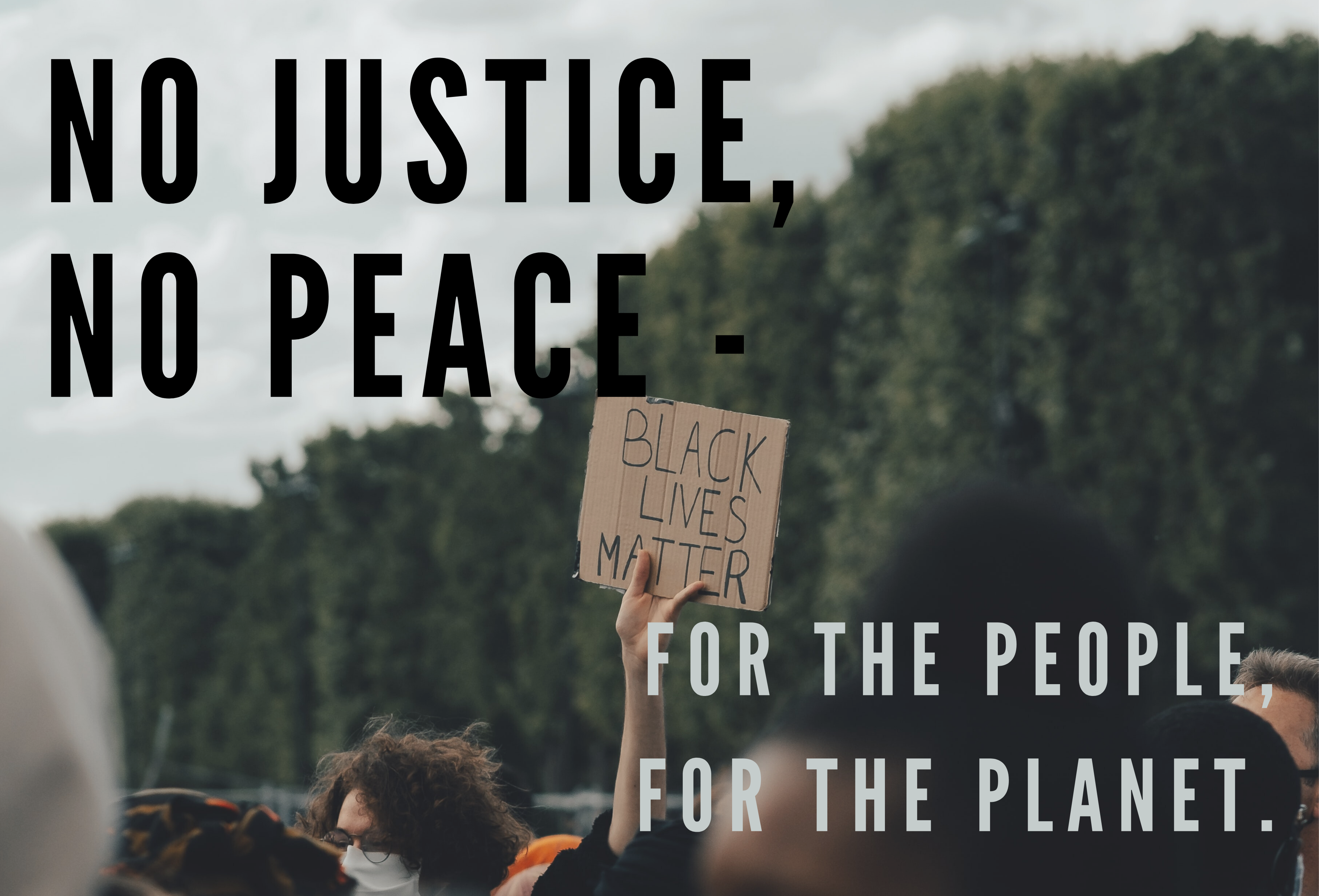
We recognize that there is already an abundance of resources on this topic. For this reason, we are compiling a non-exhaustive and non-comprehensive list of materials for education and awareness purposes. We hope that these resources will help to spark conversations in your own community, as well as steps toward anti-racist climate action.
But first, a poem.
The Tradition by Jericho Brown.
Aster. Nasturtium. Delphinium. We thought
Fingers in dirt meant it was our dirt, learning
Names in the heat, in elements classical
Philosophers said could change us. Stargazer.
Foxglove. Summer seemed to bloom against the will
Of the sun, which news reports claimed flamed hotter
On this planet than when our dead fathers
Wiped sweat from their necks. Cosmos. Baby’s Breath.
Men like me and my brothers filmed what we
Planted for proof we existed before
Too late, sped the video to see blossoms
Brought in seconds, colors you expect in poems
Where the world ends, everything cut down.
John Crawford. Eric Garner. Mike Brown.
Videos:
How Climate Change Reinforces Racism, 4:18 minutes (also check out the many resources listed in the description of the video)
Environmental Justice Explained, 3:33 minutes
A Brief History of Environmental Justice, 3:35 minutes
Climate Change is a Social Justice Issue TED Talk, 14:32 minutes
Racism and Climate Change are About You TED Talk, 17:18 minutes
The North Pole, Mini-series on Gentrification and Climate Change
Podcasts:
Climate Change and Environmental Racism, NPR article and high-school student podcast
Faith Groups on Anti-Racist Dialogue, Citizens for Public Justice intern
Growing Together: Black Voices in the Plant Community, Bloom and Grow Radio
Articles:
Environmental Racism & COVID-19, Faith in Place
Environmental Studies Erasure of Black People, the Vice
Food in the Battle Against Colonialism, the Tyee
We Farm As Resistance, Environmental Health News
Environmental Justice Wake-up Call, the New York Times
Racism Derails Our Attempts to Save the Planet, Washington Post
Whose Earth is it Anyway?, Sojourners
Climate Justice is Racial Justice, Thomson Reuters Foundation
The Worst Disasters are Never Colorblind, Grist
Climate Activists Embrace Racial Justice, Inside Climate News
The Atlantic Coast Pipeline is About People, Not Precedent, the New Republic
Climate Activists: Here’s Why Your Work Depends on Ending Police Violence, the Medium
Black Environmentalists talk about Climate and Anti-Racism, the New York Times (and see our post about it here)
What does Climate Change have to do with Racism?, Third Way
Why Every Environmentalist Should be Anti-Racist, Vogue
Environmental Racism Scholar on Pollution as ‘Violence’, E&E News
Racism is Killing the Planet, Sierra Club (and a statement from the NH Sierra Club and white silence)
Climate Change is also a Racial Justice Problem, the Washington Post
Climate Justice is Racial Justice is Gender Justice, Yes! Magazine
Books:
Rooted in the Earth: Reclaiming the African American Environmental Heritage by Dianne Glave
The Hidden Wound by Wendell Berry
Ecological Solidarities: Mobilizing Faith and Justice for an Entangled World edited by Krista Hughes, Dhawn Martin, and Elaine Padilla
Climate Justice: Hope, Resilience, and the Fight for a Sustainable Future by Mary Robinson
Black Faces, White Spaces: Reimagining the Relationship of African Americans to the Great Outdoors by Carolyn Finney
Toxic Communities: Environmental Racism, Industrial Pollution, and Residential Mobility by Dorceta Taylor (also check out more books from this author)
The Home Place: Memoirs of a Colored Man’s Love Affair with Nature by J. Drew Lanham
A list of other books on Environmental Justice, Racism, and Activism, the EcoWatch
Ways to Get Involved
Conversation on Food Justice Webinar, Society for the Increase of the Ministry
Doing Justice: The Role of Faith in Building Climate Equity, Let’s Talk Climate webcast discussion series
A list of groups to support, Civil Eats
Intersectional Environmentalist, an incredible resource that continually adds more content
If you have any questions or would like to share a resource you found, feel free to email info@18.213.234.181.
Resource by Judith Marklin
2020 Communications Intern
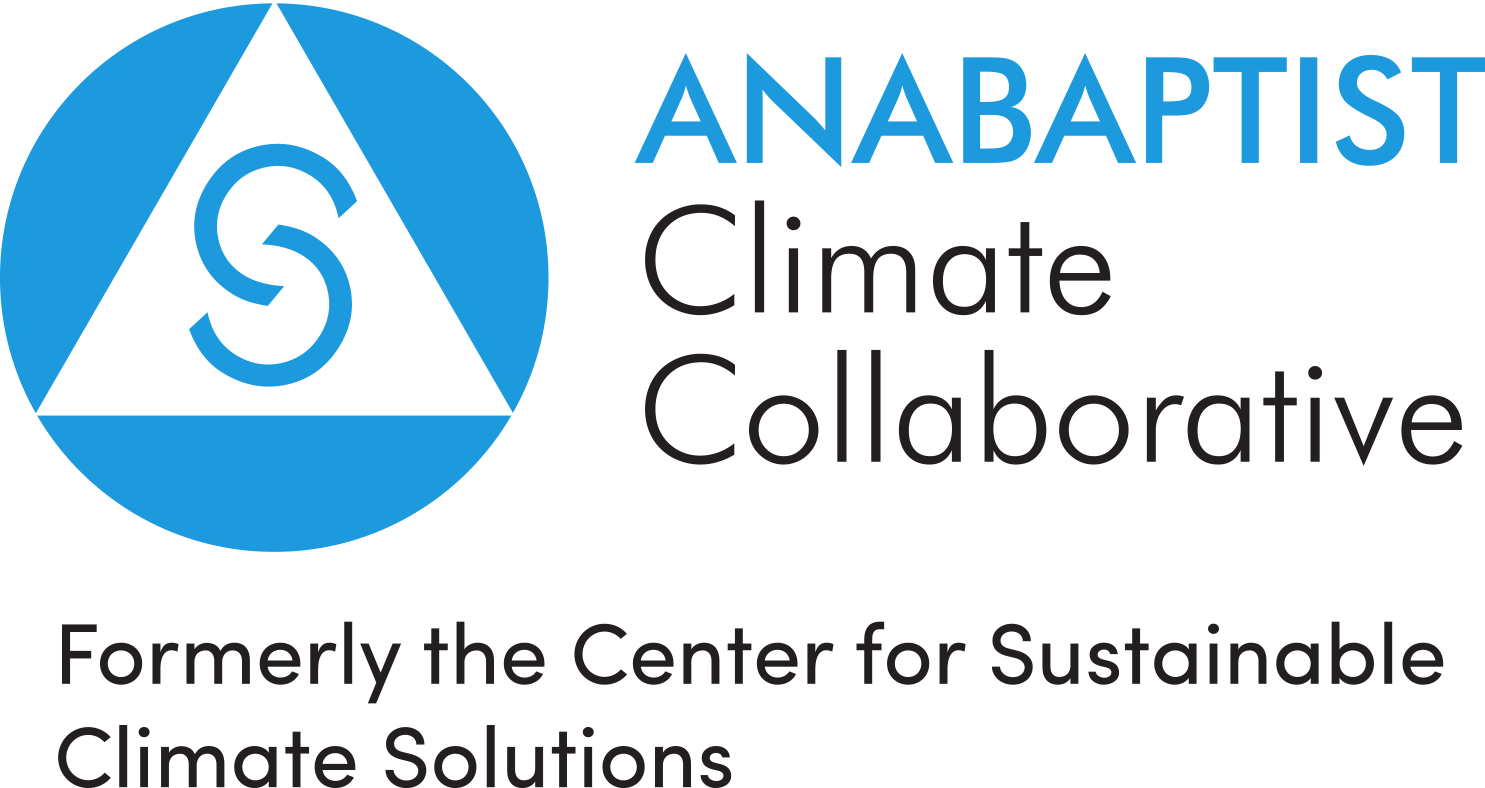

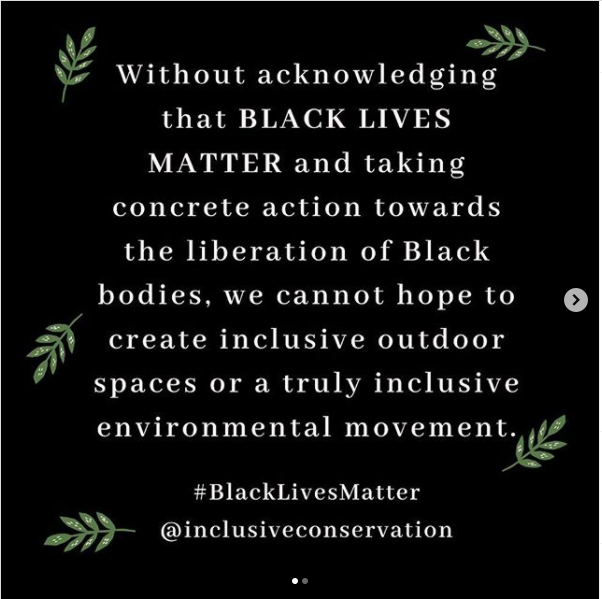
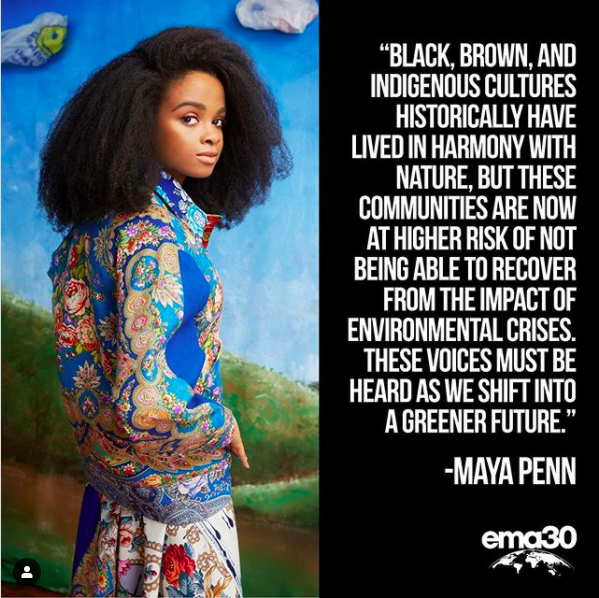
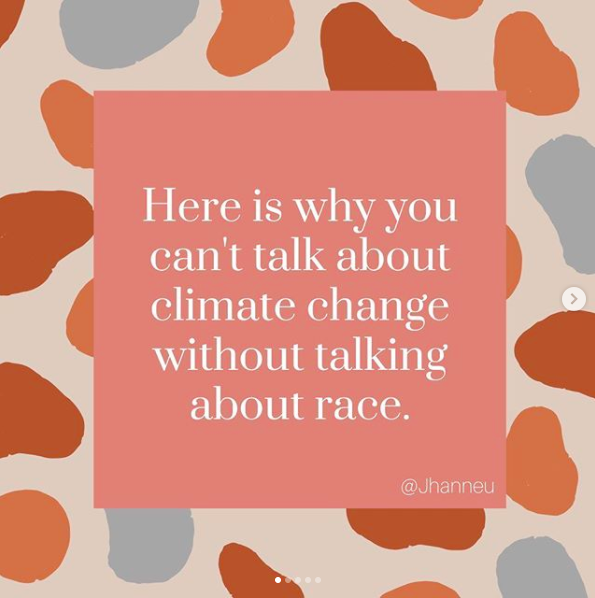
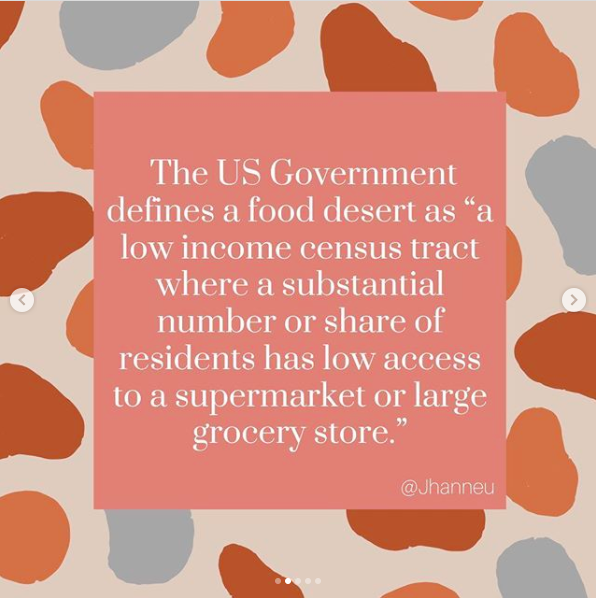
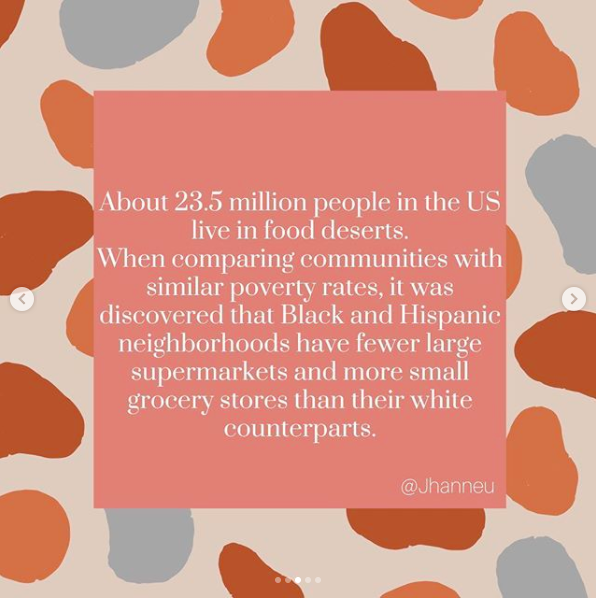
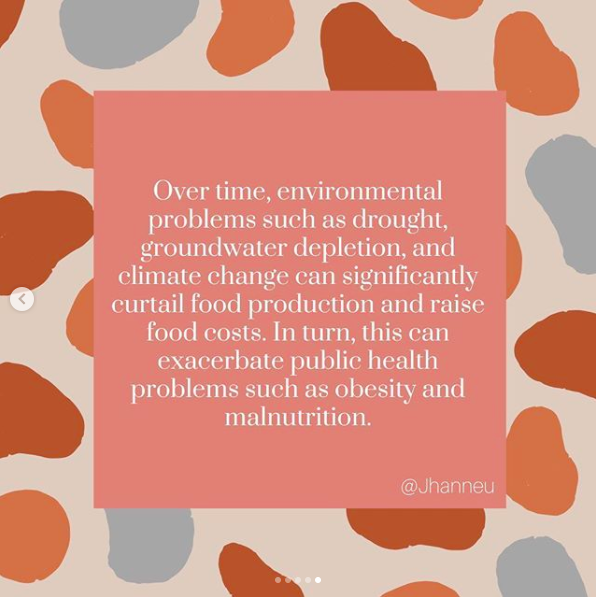
Thank you for speaking up about this. As a former CSCS ambassador, I look forward to seeing an intersectional analysis worked into the way CSCS trains its ambassadors and works with pastors moving forward.
I would also love to see CSCS go public with support for #Defund the police as a specific policy platform that will help protect black bodies and provide funds to invest in healthy, sustainable communities. I see a strong connection between defunding the police, an institution with its roots in racism and violence, and the anabaptist tradition of pacifism.
Thanks for all you do. Let’s keep pushing ourselves to be even bolder in our pursuit of justice.
Gabe – Thanks for your comments! As one of our CSCS alumni (having been an ambassador at Goshen College), we’re delighted by your continued engagement. In fact, we’re pleased that our alumni in general have stayed connected with us, and continue with their passion for climate change, including how it intersects with various other social justice issues.
We strongly stand with the Black Lives Matter movement, and we are pleased that the majority of Americans likewise now support the goals of that movement. And we hear your call for public backing of #Defund the police. As we understand this movement, many of the goals we agree with. For instance, any efforts to boost funding for social services are admirable, and examples of increases in community resilience that parallel what is needed for communities to adapt to climate change. At the same time, we’re aware that there are differing perceptions of what this phrase means, and that has politicized the phrase. Given our strong desire to build conversations across the political spectrum, we also move cautiously with anything that might draw us into the ‘culture wars’ which pervade our society at the moment. Admittedly that may come across too cautiously for some.
As this resource indicates, there is no question that racism, environmental justice, climate change, and many other issues, are interwoven and must be addressed together. Our desire within CSCS is to respond in concrete, programmatic ways which will keep racism front-and-center for us over the long term. For instance, training for incoming ambassadors will now include a section on the intersection between racism and climate justice. And as CSCS starts a process of envisioning where we want to be in 5 years, issues of racism will be part of our planning. As we work at all of these goals, both short- and long-term, we welcome additional suggestions from our readers.